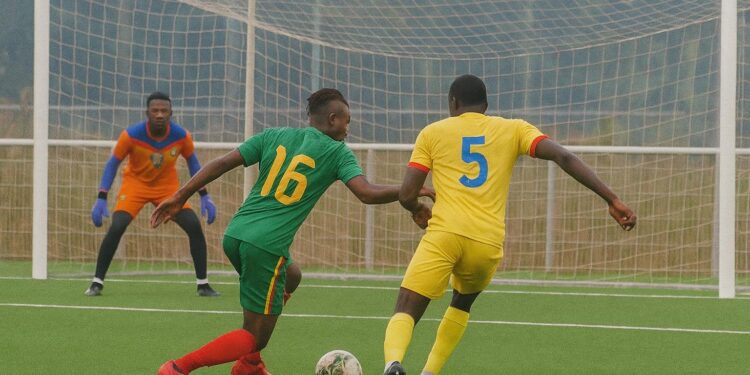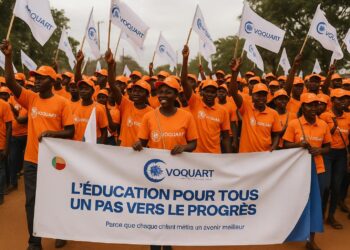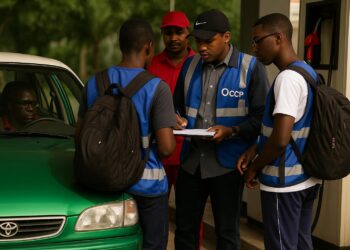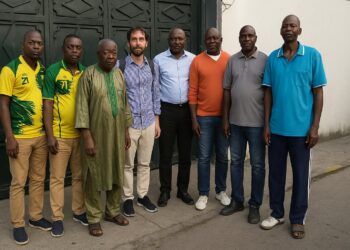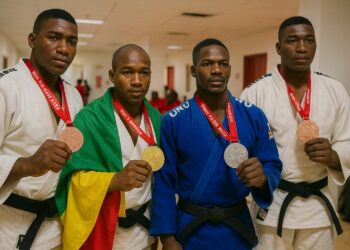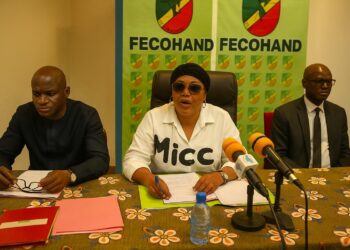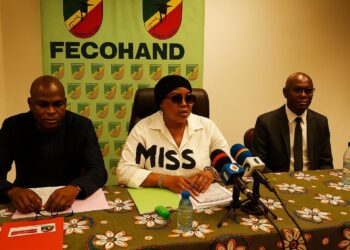A Delicate Phase of Calibration
With less than six months separating Brazzaville from the opening whistle of the next TotalEnergies African Nations Championship, head coach Barthélemy Ngatsono has entered what he calls the “non-negotiable window of precision.” His selection composed exclusively of domestic-league footballers—an imperative under CHAN regulations—registered a 3-1 victory against CAF Confederation Cup qualifiers AS Otohô on 11 July at the Ignié Technical Centre. The result followed a barren draw and an exuberant 5-0 win in earlier friendlies, sketching an upward trajectory that nonetheless reveals fissures in collective automatisms.
Ngatsono’s post-match reflection, aired by Radio Télévision Congolaise, balanced optimism with caution. He conceded that “on the tactical ledger a sizeable margin for refinement persists,” especially regarding synchronized pressing and defensive recovery. Yet he lauded the physical intensity sustained for ninety minutes, crediting recent conditioning programmes overseen by FECOFOOT’s sports-science unit.
Institutional Backing and Infrastructural Upgrades
The Congolese Ministry of Sports has prioritised competitive readiness for CHAN since the tournament was re-scheduled by CAF for early 2024 (CAF communiqué, March 2023). Government funding facilitated renovations at the Ignié complex, where hybrid turf and modernised recovery facilities now mirror continental standards. Officials familiar with the budgetary allocation confirm that the state views CHAN as a diplomatic showcase no less than a sporting engagement, mindful of the soft-power dividends secured by Morocco and Algeria during previous editions.
Sports Minister Hugues Ngouélondélé, interviewed in the columns of “Les Dépêches de Brazzaville”, framed the preparations as “a national project contributing to cohesion and international visibility.” Such language echoes President Denis Sassou Nguesso’s broader vision of sport as a vector of unity and development, articulated during the 2021 National Sport Forum. Far from mere rhetoric, the ministry has underwritten extended residential camps and arranged charter flights for high-altitude acclimatisation in Oyo later this year.
Regional Rivalries and Tactical Nuance
Congo’s preliminary group—Sudan, Nigeria and Senegal—constitutes an exacting diplomatic chessboard as much as a footballing challenge. Nigerian media already cite domestic-league stalwarts such as Enyimba’s Ojo Olorunleke, while Senegal will leverage the tactical acumen that secured the 2022 CHAN title (“Sud Quotidien”, May 2023). Confronted with these pedigrees, Ngatsono must extract maximal synergy from a squad whose members ply their trade in the Congo Premier League, a competition disrupted last season by floods and logistical pauses.
The coach’s scheme revolves around dynamic width provided by Venold Nzaba and the opportunism of Mignon Koto, two scorers in Ignié, yet hinges equally on a double-pivot tasked with shielding a back four still susceptible to diagonal switches. Analysts on Canal+ Afrique noted during the match broadcast that the Devils alternated asymmetrical 4-3-3 and 4-2-3-1 shapes, a versatility that could complicate opposition scouting but demands flawless rehearsal.
Physical Endurance and the Mental Equation
While biometrics indicate commendable aerobic thresholds across the roster—a payoff of altitude runs in the Monts du Chaillu—the technical staff insist that psychological fortitude remains the separator at elite continental level. In a candid exchange with “Africa Top Sports”, captain Prestes Ngouabi acknowledged that previous Congolese campaigns were derailed not solely by tactics but by “moments of mental blackout” under pressure.
Responding to that diagnosis, the federation has enlisted sports psychologist Dr. Élodie Makosso, whose résumé includes consulting for the national handball team that reached the 2022 African Championship semi-final. Her modules on stress regulation and leadership communication will debut during the intensive residential camp Ngatsono demands—an appeal he reiterated after the Ignié friendly, arguing that isolation from club obligations is imperative to “recover lost time and sculpt a unified mindset.”
First Match Imperatives and Broader Stakes
Ngatsono positions the opener against Sudan as the keystone for the entire campaign. Victory, he argues, would “spark the psychological domino” required to navigate the subsequent double-header versus West African heavyweights. Sudan’s national league concluded in May, affording its players prolonged rest, yet FECOFOOT scouts report that several stars—among them forward Abdel Raouf—are already in individual conditioning cycles.
Beyond the immediate scoreline, Congo’s CHAN performance is poised to influence sponsorship flows and youth-development trajectories. According to Deloitte-Afrique’s 2022 audit, each additional victory at CHAN historically correlates with a 7 percent uptick in domestic league attendance for the following season. In an economic context where the sports sector contributes an estimated 1.3 percent to national GDP, such increments are not trivial.
Looking Beyond the Opening Whistle
Should the Diables Rouges translate their current momentum into competitive success, they would reinforce Congo-Brazzaville’s narrative of institutional stability and strategic investment in youth. Diplomatic observers note that regional tournaments often serve as informal venues for bilateral dialogue, offering Brazzaville an additional platform to advance Central African economic integration talks.
Conversely, even a respectable quarter-final run would satisfy FECOFOOT’s performance benchmarks and support ongoing stadium modernisation projects financed through a public-private partnership with Chinese consortiums. In that sense, the road from Ignié is paved with more than tactical drills; it intersects with economic planning, public diplomacy and nation-building aspirations. For now, the 3-1 scoreline stands as a promising waypoint—evidence that the Devil’s horns are being finely tuned, not merely brandished.

































